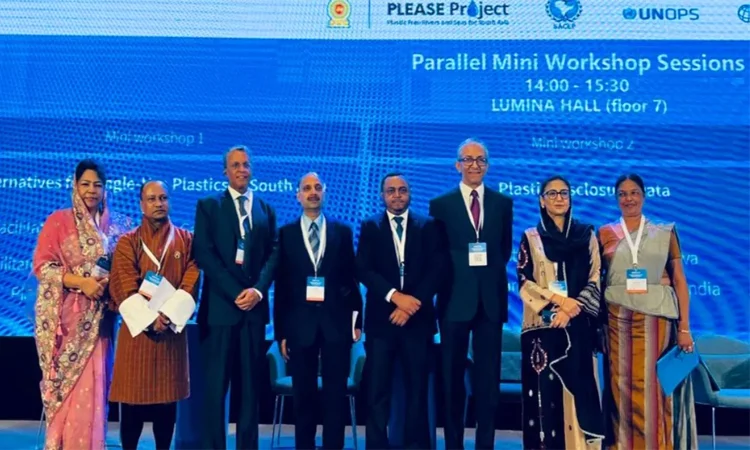News Flash
News Flash

DHAKA, April 8, 2025 (BSS) - Bangladesh has called for a coordinated South Asian strategy to tackle plastic pollution, highlighting the urgency of cross-border cooperation, sustainable innovation, and stronger regulatory frameworks.
Dr. Farhina Ahmed, Secretary of the Ministry of Environment, Forest and Climate Change, said this during a high-level panel discussion titled "Policy and Regulatory Challenges of Managing Plastic Waste."
The session was part of the "Plastic-Free Rivers and Seas: A Vision for South Asia" Regional Roundtable, held on Monday in Colombo, Sri Lanka, according to a message received here.
Dr. Farhina Ahmed said, "South Asia, a region of some of the world's most important river systems, is facing a growing plastic pollution crisis."
Plastic waste crosses borders, accumulates in regional waterways, and threatens ecosystems and livelihoods. This calls for a coordinated regional strategy based on cooperation, innovation, and sustainable financing," she said.
She identified three key reasons behind the region's ongoing struggle with plastic waste: inadequate waste management practices, such as open dumping and burning, weak enforcement of existing policies, and limited regional cooperation in sharing data and conducting joint monitoring.
Dr. Farhina stressed the formulation of a regional multi-sectoral plastic action plan to tackle plastic pollution. She said the plan should include harmonised policies to support a circular economy, unified regulatory standards to reduce plastic generation, and alignment with the Global Plastics Treaty.
She also proposed strengthening the recycling value chain by improving collaborative waste collection, enhancing sorting systems, and investing in innovative recycling technologies.
Bangladesh also urged South Asian nations to phase out harmful plastics and chemical additives, and to promote safer, recyclable alternatives.
Additionally, a regional tracking system for plastic waste and targeted clean-up programmes for legacy plastic hotspots were proposed to enhance governance and accountability.
The Bangladesh environment secretary highlighted the need for enhancing law enforcement to curb illegal plastic dumping and cross-border leakage.
Dr. Farhina emphasised the importance of South Asia-specific research, public-private partnerships for sustainable packaging, and digital tools like AI-driven waste monitoring.
"Solutions imported from elsewhere may not work here. We must invest in innovation tailored to our region," she noted.
To bridge the funding gap, the Environment Secretary urged the mobilisation of climate and environmental funding, and the implementation of Extended Producer Responsibility (EPR), so that industries take responsibility for plastic waste management.
She also proposed setting up a regional monitoring system to track progress, assess recycling efficiency, and measure marine litter levels.
"We must move beyond individual national efforts. Let us act boldly, collectively, and urgently-for a plastic-free future in South Asia," Dr. Farhina said.
Environment Secretary Dr. Farhina Ahmed is leading a three-member Bangladesh delegation, which includes Shamima Begum, Joint Secretary of the Ministry of Environment, Forest and Climate Change, and Razinara Begum, Director of the Department of Environment, to Colombo.